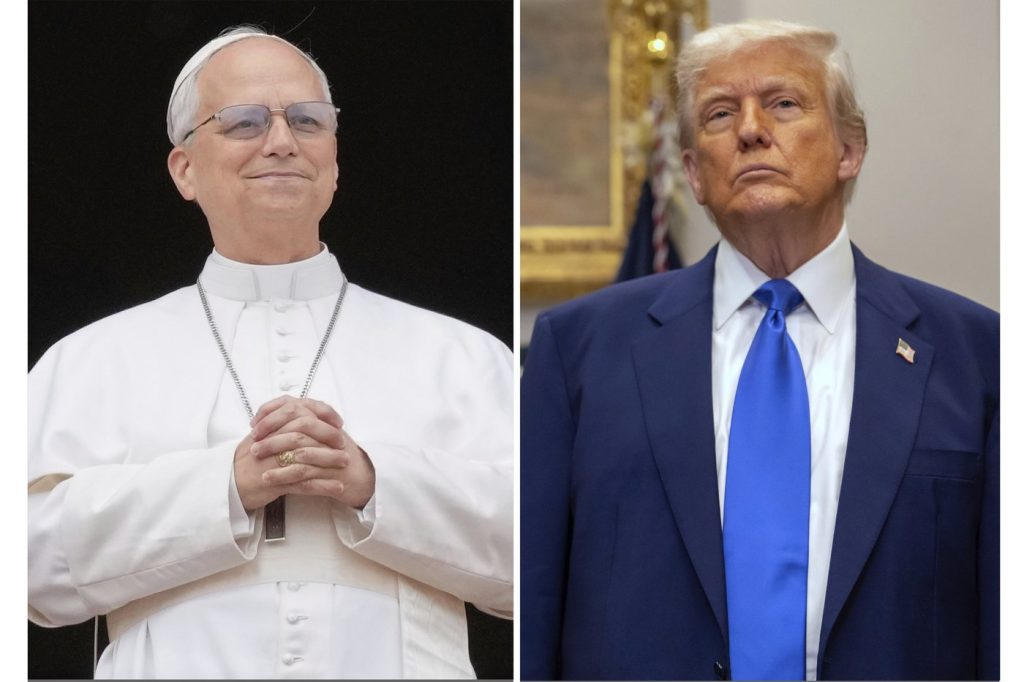The recent election of Pope Leo XIV, born Robert F. Prevost in Chicago, marks a significant moment in history as he becomes the first U.S.-born pope leading the world’s 1.4 billion Catholics. His election comes at a time when the United States is led by President Donald Trump, whose motto is "Fight!" in stark contrast to Pope Leo's debut message of "Peace."
Politically and personally, Trump and Pope Leo represent two different approaches to leadership and global influence. Trump's policies, characterized by tariff wars and unilateral threats, have caused disruptions in global relations, potentially contributing to the Catholic Church’s hesitance to elect an American pope for nearly 250 years. However, Leo’s election is seen by some, like David Gibson from Fordham University, as a beacon of hope, offering a perspective that resonates with a broader, global audience.
The election of Leo XIV has initiated discussions about the implications of having two prominent American figures leading the world. Trump, whose "America First" policy defines his administration, has openly acknowledged his support for Leo, despite the unease his lighthearted AI-generated image of himself as a pope caused among Catholics. While Trump maintains a combative relationship with the media, Leo has taken a more unifying stance, recently calling for the release of imprisoned journalists and advocating for freedom of the press.
Pope Leo, previously serving as a missionary in Peru for twenty years, brings a different understanding of humanity to his role. Unlike Trump, who has focused on American interests, Leo’s background allows him to aspire for a more inclusive approach that emphasizes service to the needy rather than political power dynamics. His first speech notably avoided mentioning his American heritage, reflecting a preference for universal values over national identity.
Theologians suggest that understanding Leo as "the second pope of the Americas" may offer a more accurate view of his papacy, suggesting that his perspective is less about American nationalism and more about fostering dialogue within a global context. This is perceived as a challenge to the current administration's values, emphasizing a leadership model centered on service rather than dominance.
Despite Leo's American roots, many American cardinals present during the conclave emphasized that his selection wasn't a counterbalance to Trump’s leadership but rather a choice based on his ability to strengthen faith. Cardinal Timothy Dolan and Archbishop Wilton Gregory both stated that Leo's election aimed at reinforcing the Church's role rather than addressing political tensions directly.
Skeptics note that Leo’s style and approach fall outside the typical American political mold, positioning him as a bridge-builder rather than a reactionary leader. Some cardinals remarked upon the paradox of Leo being deemed “the least American of the American cardinals,” underscoring the disparity between his vision and that of President Trump. Scholars like Steven Millies assert that both leaders operate within vastly different frameworks, aligning Leo with the Gospel’s call towards compassion for the poor and vulnerable, which diverges significantly from Trump's priorities.
The juxtaposition of Pope Leo XIV and President Donald Trump illustrates a broader conversation about the role of American leadership on the international stage. The dynamics at play as both leaders navigate their respective roles in 2025 highlight the tensions between conflicting ideals of governance, humanitarianism, and nationalistic policies.











